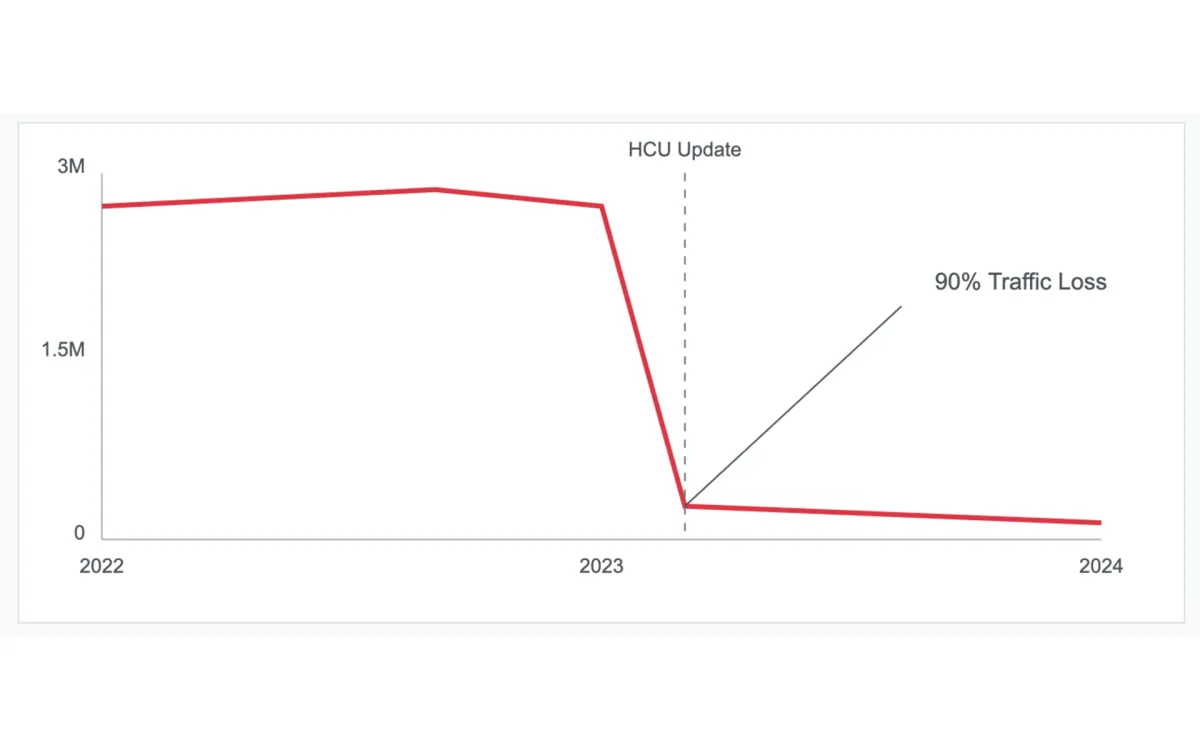
The Spanish automotive website Test Coches has experienced a dramatic decline in readership, losing approximately 3 million monthly users following Google's implementation of the Helpful Content Update (HCU). According to statements made by Test Coches founder Carlos González on December 24, 2024, the site's traffic has diminished to mere thousands of monthly visitors.
González, who established Test Coches in 2014, has dedicated ten years to creating automotive content, including daily news coverage, technical information, and buyer guidance. Prior to the algorithmic change, the website served as a comprehensive resource for Spanish-speaking automotive enthusiasts, offering maintenance guides, mechanical explanations, administrative assistance, and technical specifications.
The impact manifested through multiple Google services. Data shared by González shows significant drops in both Google Search and Google Discover visibility. A technical analysis of the situation revealed an unusual pattern: while Test Coches' original content struggles to maintain visibility under its domain, identical content achieves top rankings when syndicated through Microsoft's MSN platform.
The scale of the traffic reduction becomes evident in the metrics shared by González. The website's performance data indicates a decline from millions of monthly users to a fraction of its former audience. This dramatic decrease occurred despite maintaining the same content creation standards that had previously earned the site its substantial readership.
González's professional background adds context to the situation. His experience includes writing for established technology and automotive publications such as El Androide Libre, Omicrono, ADSLZone, MovilZona, Cultura4K, Andro4All, and CincoDías. He also contributed to automotive-focused outlets like Motor.es and Forococheseléctricos before founding Test Coches.
The timing of these changes traces back to late 2022, when Google implemented its Helpful Content Update. The algorithm modification, according to González, aimed to reduce the visibility of AI-generated content while promoting human-created material. However, González argues that Test Coches, despite being entirely human-authored, has been negatively affected by these changes.
In response to the traffic decline, Test Coches has begun exploring alternative distribution channels. González reports increased focus on YouTube content creation, where the platform's algorithmic behavior appears more favorable to their content. However, the website continues to publish daily automotive news despite the reduced visibility.
The financial implications for Test Coches have been severe. González acknowledges that standard business metrics would suggest immediate closure, as the current traffic levels cannot sustain the operation. Despite these challenges, he maintains the website's operations, citing his commitment to automotive journalism.
Looking ahead, potential algorithmic adjustments might not arrive until 2025. This timeline emerged from Google's October 2024 meeting with content creators, where the company acknowledged challenges in distinguishing legitimate websites from artificial content. During this session, which included 20 publishers, Google conducted interviews and observations to better understand the characteristics of authentic content creators.
Test Coches' experience highlights broader questions about the sustainability of independent automotive journalism in the digital age. The site's struggle demonstrates how algorithmic changes can fundamentally impact specialized content providers, even those with established track records and human-authored content.
The situation at Test Coches represents a significant case study in the challenges facing independent digital publishers. As the automotive website approaches its tenth anniversary, its experience illustrates the precarious position of specialized content creators in an environment where visibility depends heavily on algorithmic recognition.

